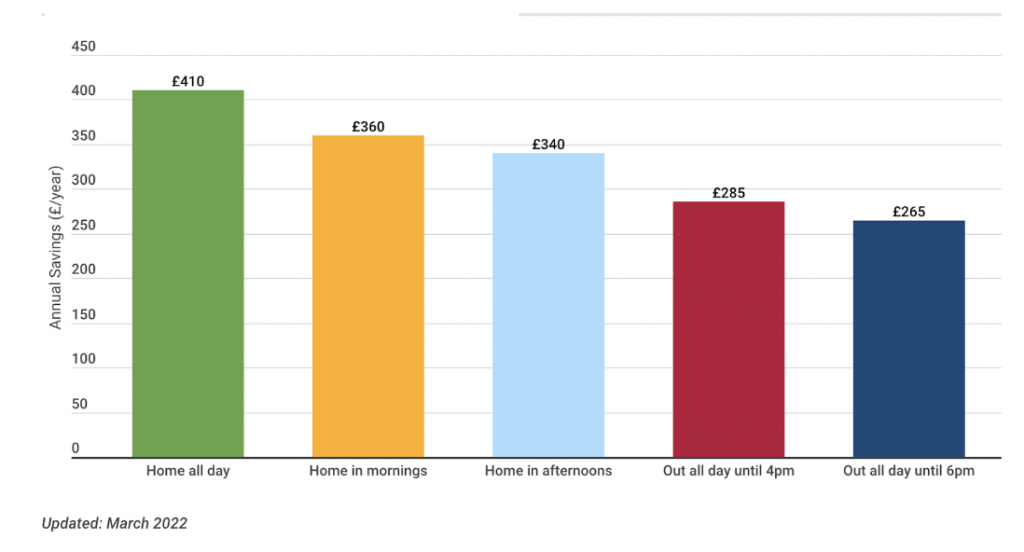How Are NI Electricity Prices Actually Worked Out?
One of the most common questions we get asked is: “How are electricity prices actually worked out?” It’s a good question – and not always
With increasing energy prices many people are looking at ways to cut their bills and take more control over their home energy supply.
Solar Panels can be an effective way to generate renewable energy for your home, reduce bills and do your bit for the environment. And any energy that you do not immediately need can be either stored through battery storage or many suppliers in Northern Ireland will pay you for any excess electricity you generate.
Solar electricity panels, also known as photovoltaics (PV), capture the sun’s energy and convert it into electricity that you can use in your home. The PV cells convert the sunlight into electricity, which can be used to run household appliances and lighting.
So by installing solar panels, you can generate your own renewable electricity.
Yes, what may surprise many people is that PV cells do not need direct sunlight to work. Solar panels will still convert light into energy on overcast days; they’ll just absorb more when it’s sunny
In fact, Northern Ireland has good conditions for solar panels. The main danger to panels’ efficiency is overheating, which is unlikely in Northern Ireland.
More and more homes and businesses are turning to solar panels to help manage costs and provide energy independence. There are around 23,919 solar panel sites in Northern Ireland which is impressive as there was virtually no generation from Solar PV up to 2016.
The average price in Northern Ireland is £480 per 350kW solar panel, according to the Energy Saving Trust
That means that a 3.5kWp system – which is what the average three-bedroom house needs – will cost £4,800.
The amount you will pay will depend on the number of PV panels to be installed. The cost will be affected by whether you choose panels or tiles, or opt for building-integrated panels or choose panels that sit on top of your roof. Panels on top of the roof are the cheapest option, while tiles are the most expensive for the equivalent system.
Costs can vary between installers and products, so we recommend getting quotes from at least three installers.
How much you could save on your electricity bills will depend on the number of panels you have installed, and how much energy you use – the more you are at home during the day, the more you are likely to save.
As a rough guide you could save between £260 to £400 per year based on your energy use.

Unfortunately, at the moment there are no government grants in Northern Ireland for solar panels. Hopefully this will change with the recently published NI Energy Strategy which seeks to tackle climate change, support renewable energy and encourage everyone to play their part in reaching net zero
In the past, the government forced suppliers to buy green energy from domestic solar panel owners, because the Northern Ireland Renewables Obligation legally compelled them to supply a certain amount of renewable energy alongside the rest of their energy production. However, though the law still exists, the scheme stopped accepting new applicants on 31st March 2017.
Most households will use about 15-25% of the energy you generate, though this can change quite dramatically based on:
Many people also choose to install a battery storage system at the same time as when they are installing solar panels. This means any excess energy from the PV cells can be stored and used whenever it is needed in the home.
A solar PV panel consists of many cells made from layers of semi-conducting material, most commonly silicon. When light shines on this material, a flow of electricity is created.
Solar PV systems are made up of several panels, with each panel generating around 355W of energy in strong sunlight. Typical systems contain around 15 panels and generate direct current (DC) electricity. Because the electricity used for household appliances is alternating current (AC), an inverter is installed along with the system to convert DC electricity to AC. This electricity can be used throughout your home, or exported to the grid.
Solar panels usually last somewhere between 20-30 years. This does not mean that solar panels stop generating electricity after this timeframe. They will continue to produce electricity for many years after that, it’s just that it will be at a rate below what the manufacturers would describe as ‘optimal’. So when we say that solar panels last for 25 to 30 years, what we really mean is that they are performing at their best during this timeframe.
One of the most common questions we get asked is: “How are electricity prices actually worked out?” It’s a good question – and not always
We’re excited to share our annual Home Energy Survey (2025) with you, marking the fifth year in a row we’ve been able to give you
Fancy winning £200 towards your energy bills? We want to hear from you! We’re running our Home Energy Survey for 2025 and want to know
Keep up to date with all the latest energy news, deals and advice from Power to Switch
Power to Switch Ltd